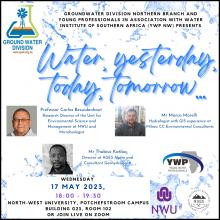Researching Fracking in the Karoo: Summary of lessons learned
Research on Fracking in the Karoo basin yielded results that, if not considered “unexpected”, can be considered as “should have been foreseen”. Some aspects substantially impacting research on fracking are often overlooked when undertaking scientific research on an emotional topic such as fracking. This presentation aims to provide insights and recommendations based on the experiences and outcomes of current research on hydraulic fracturing or “fracking” in the Karoo basin of South Africa. Fracking has been a subject of significant research and debate over the past decade.
